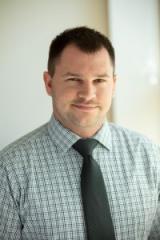Live OCD & Anxiety Lecture Series: What Is Reasonable?: The Intersection of OCD and Food Allergy Anxiety

When someone with Obsessive Compulsive Disorder (OCD) also has food allergies (or is a caregiver to someone with food allergies) the food allergies can become a focus for the OCD symptoms. In typical OCD treatment obsessions are often addressed with Exposure Response Prevention (ERP). ERP involves the person putting themselves in triggering situations so that they can practice tolerating the distress without the use of their compulsions. However, food allergy management requires a person to avoid their allergens in order to stay safe. This lecture will help clinicians understand the basics of both food allergy management and Exposure Response Prevention as well as how to modify ERP to accommodate OCD symptoms around food allergies in a safe and effective way. Participants will also learn more about the ways that these two conditions can interact so they can successfully support clients struggling with this particular manifestation of OCD symptoms.
Category
- Anxiety/OCD
- Psychotherapy
- Workshop
Format
- Live Webinar
Credits
- 1.00 ACEP NBCC clock hours
- 1.00 AMA PRA Category 1 Credit™
- 1.00 Category I credits for Social Workers
- 1.00 Psychologists
- 1.00 MNA Contact Hours for Nurses
- 1.00 Participation
Event date October 18, 2024
Live Grand Rounds: Digital Innovations to Improve Capacity in Mental Health Care

Access to specialty mental health care is limited for most Americans, with more than half of those having a mental illness not receiving treatment. Further, for patients who need emergent psychiatric care, rates of prolonged length of stay in Emergency Departments have increased with the onset of the COVID-19 pandemic. There is a need for innovative solutions designed to support clinicians and streamline care processes. Digital health tools (e.g., mobile apps, wearable devices, telemedicine, electronic health records) have the potential to significantly improve the delivery of health care services and care of patients. Given the rising need for mental health services, digital tools are increasingly utilized to improve capacity and augment clinical care. This workshop will discuss several innovative digital solutions designed to improve access to mental health care.
Category
- Basic Science
- Grand Rounds
Format
- Live Webinar
Credits
- 1.00 ACEP NBCC clock hours
- 1.00 AMA PRA Category 1 Credit™
- 1.00 Category I credits for Social Workers
- 1.00 Psychologists
- 1.00 MNA Contact Hours for Nurses
- 1.00 Participation
Event date October 23, 2024
Live Workshop: Behavioral Data Collection on an Inpatient Psychiatric Unit

Applications of Applied Behavior Analysis (ABA) for clients are based off behavioral data collected by staff. Typically, ABA is conducted in a home, clinic, or even school setting, where staff collect and record this data for analysis by a Board-Certified Behavior Analyst (BCBA). However, when an individual’s behavior becomes unmanageable in an outpatient setting, they may need inpatient treatment. This data collection can and should continue in the inpatient setting, but there are various challenges and obstacles that must be addressed in order to do so. This presentation will discuss some of those challenges and provide ways to overcome them.
Category
- Basic Science
- Workshop
Format
- Live Webinar
Credits
- 1.00 ACEP NBCC clock hours
- 1.00 Behavior Analyst Certification Board
- 1.00 Category I credits for Social Workers
- 1.00 Psychologists
- 1.00 Participation
Event date October 25, 2024
Live Grand Rounds: Psychodynamic Formulation: An Expanded Approach

Formulation is essential to every treatment. Without a formulation, we are unable to make a diagnosis, collaboratively create a treatment plan, or engage in treatment. Yet formulation is not always taught, and, when it is, this teaching is not always clear. In this talk, Deborah Cabaniss will discuss the work that she and colleagues in the Psychodynamic Formulation Collective have done to operationalize psychodynamic formulation and to place the effects of culture and society on par with other psychodynamic models of the mind. Clinically relevant to all patient settings, this talk will be of interest to trainees and seasoned clinicians alike.
Category
- Grand Rounds
- Psychodynamic Therapy
Format
- Live Webinar
Credits
- 1.50 ACEP NBCC clock hours
- 1.50 AMA PRA Category 1 Credit™
- 1.50 Category I credits for Social Workers
- 1.50 Psychologists
- 1.50 MNA Contact Hours for Nurses
- 1.50 Participation
Event date October 28, 2024
Live OCD & Anxiety Lecture Series: Is it All in My Head: Treating Health Anxiety

We all know we are going to die, but the when and the how are unknown. While many causes of death are due to preventable injury, the majority of death is caused by medical related factors such as cancer, stroke, heart disease, and Alzheimer’s to name a few. We often head to Dr. Google with our symptoms where we read that our headache can be caused by dehydration or possibly a brain tumor. Of course, we assume the worst. It is no wonder humans experience excessive health-related fears based on misperceptions of innocent bodily cues and sensations. Generally, we refer to these worries as Health Anxiety, however we are really talking about two different diagnoses: Illness Anxiety Disorder and Somatic Symptom Disorder. In this talk you will learn the difference between the two diagnoses and how to treat them using effective techniques.
Category
- Anxiety/OCD
- Psychotherapy
- Workshop
Format
- Live Webinar
Credits
- 1.00 ACEP NBCC clock hours
- 1.00 AMA PRA Category 1 Credit™
- 1.00 Category I credits for Social Workers
- 1.00 Psychologists
- 1.00 MNA Contact Hours for Nurses
- 1.00 Participation
Event date November 1, 2024
Live Professional Workshop: Speak, Move, Change: Decolonizing Your Practice, Restoring Your Power

In "Speak, Move, Change: Decolonizing Your Practice, Restoring Your Power," we will address how entrenched systems of racism and colonialism manifest in social work practice, particularly through language and communication. Social workers are often limited by institutionalized frameworks that perpetuate oppression, creating a clinical problem where bias and inequity undermine care. These issues persist because of a lack of critical reflection on how language, thought patterns, and communication styles reinforce oppressive systems. In this workshop, participants will explore how decolonizing their language and practice can restore their power to serve clients more equitably. Attendees will be introduced to strategies and tools to critically examine their communication, develop anti-racist practices, and gain skills to transform their work environments and client interactions.
Category
- Health Equity
- Minority Health
- Workshop
Format
- Live Webinar
Credits
- 1.00 ACEP NBCC clock hours
- 1.00 Category I credits for Social Workers
- 1.00 Psychologists
- 1.00 Participation
Event date November 15, 2024
Live OCD & Anxiety Lecture Series: SPACE – Parent Based Treatment for Child Anxiety and OCD

This talk focuses on the role of parental behaviors in childhood anxiety and OCD. Highlighting the prevalence and comorbidity of these problems in children, the presentation underscores the importance of reducing family accommodation—a common parental response to a child’s anxiety that often exacerbates symptoms. SPACE (Supportive Parenting for Anxious Childhood Emotions) focuses on increasing parental support while decreasing accommodating behaviors, aiming to foster a child’s independence and confidence. The talk will provide an introduction to the rationale, evidence-base, and key steps of SPACE treatment.
Category
- Anxiety/OCD
- Psychotherapy
- Workshop
Format
- Live Webinar
Credits
- 1.00 ACEP NBCC clock hours
- 1.00 AMA PRA Category 1 Credit™
- 1.00 Category I credits for Social Workers
- 1.00 Psychologists
- 1.00 MNA Contact Hours for Nurses
- 1.00 Participation
Event date November 22, 2024

 Facebook
Facebook Twitter
Twitter LinkedIn
LinkedIn Forward
Forward